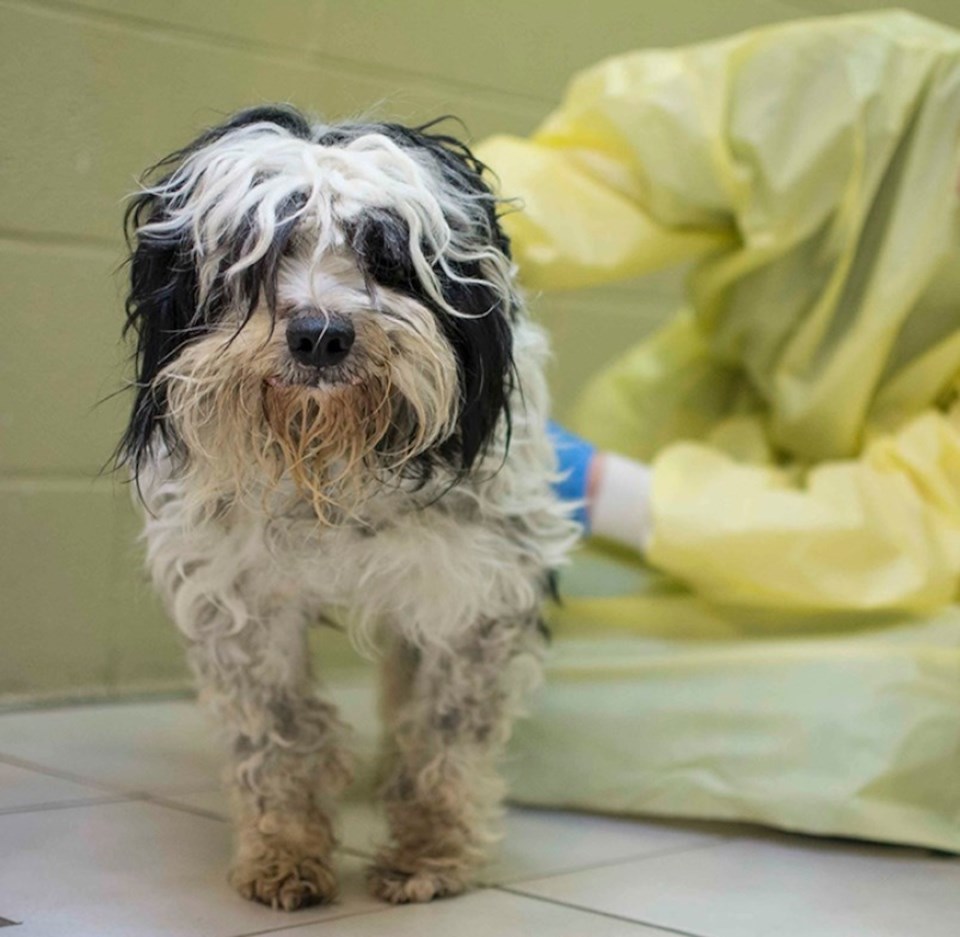In the closing arguments for an animal cruelty case involving a Brackendale woman, the Crown said there was substantial evidence the accused, Neddy Tsin, did not provide proper care for the dogs on her property, causing them to be in distress.
On the other hand, Tsin, who was representing herself, said that she was the victim of "a plot," though she did not give any evidence to support this claim.
She also questioned the accuracy of the testimony of the SPCA, which searched her home while being accompanied by the RCMP.
The statements were made in North Vancouver court on Jan. 31, and marked the end of the trial for Tsin, who was charged with two counts of causing animals to continue to be in distress.
The alleged offences occurred on Nov. 24, 2016, in Brackendale, and would later culminate in a seizure of dogs.
According to Crown prosecutor James Cryder, there were 29 dogs on Tsin's property, most of which were not cared for sufficiently.
Cryder summarized the testimony of the RCMP, the SPCA and a veterinarian, all of whom had been called to the stand earlier in the trial.
"There is substantial evidence that Ms. Tsin did not provide care which protected the animals from circumstances that are likely to cause the animal to be in distress," Cryder said.
During the SPCA's first visit to the property on Nov. 24, 2016, he said, an SPCA officer smelled ammonia and feces and could hear several dogs barking.
The SPCA obtained a search warrant for a second visit on Nov. 30, 2016, to gain entry to the home, which was in Brackendale. The RCMP accompanied the SPCA.
On that second occasion, Cryder said, there were 29 dogs on Tsin's property.
He said the food available was of poor quality, which amounted to deprivation for the animals.
"There was dry, caked, wet food left on the floor in plates," Cryder said.
He added that there was no safe space for the puppies, which meant they could be chewing or interacting with dangerous objects, and there was little ventilation.
"Everyone commented on the strong smell of urine, ammonia and feces," Cryder said.
Several dogs were being kept in a vehicle in the garage.
"The SPCA officers testified no food for the eight dogs in the car — it's a small SUV... no water, and if you recall the testimony...one dog [that] was removed from the vehicle pulled to a puddle and drank to excess," said Cryder. "And Crown submits that's consistent with the deprivation of water and potentially suffering risk of excessive heat."
He said the animals were cramped in the vehicle, and there was no light in the garage.
"The conditions were unsanitary," said Cryder. "Strong smell of urine and feces from the car and the dogs themselves. The dogs were foul with feces."
On the other hand, Tsin said that there were inaccuracies in the witnesses' recollections.
She said the officers incorrectly identified how many litters of puppies there were.
Judge Joanne Challenger asked why that detail was important.
"Shouldn't it be the truth when we swear under oath?" Tsin replied.
Challenger said the significance of the puppy litters was not clear.
She also said that Tsin did not take the stand to testify under oath that there were inaccuracies in what the SPCA and RCMP witnesses said.
Challenger said that the court could only consider testimony under oath or documents that were submitted as evidence at the time of the trial.
"If you took issue and say it's somehow important there were only three litters and not four, then you should've called evidence to establish that," said Challenger. "I'm still not following why that would be particularly significant — whether there were in fact three separate births with puppies or four separate births with puppies."
Tsin said she has not had experience in court before.
However, Challenger responded that she had reviewed the procedures with her, which Tsin acknowledged.
The court also heard that during the search of her property, Tsin was arrested, because she was not co-operating with the authorities.
Tsin called this a "calculated act."
"They will remove me no matter how well I behave," she said. "They all carry guns; how will I want to deal with somebody with guns in their pocket, in their belt?"
Tsin also addressed the dogs that were in the car.
"These dogs do not live with me in my house," she said. "[My husband] brought them in that morning and he testified that, and I have no knowledge of how many dogs that he brought in."
However, Challenger said that Tsin's husband, Robert Minions, had testified that he was going to bring the dogs to Tsin, who had made arrangements to groom the animals.
"You must've known they were coming," Challenger said, adding the animals were left in the vehicle for hours.
Tsin said she knew the dogs were being dropped off, but she did not know how many.
She said she was not the one who put the dogs in the vehicle.
"Your evidence is from Mr. Minions, that you knew about those dogs and you left them in the car in the garage for…hours," Challenger said. "Mr Minions testified that this was all prearranged. You prearranged it. He just went and picked up the dogs that you were expecting him to do that."
Tsin said the case was all an attempt to discredit her.
"The plot was to destroy me. Your honour, you want to know the truth...We have very racist neighbours."
Challenger, however, said there was no evidence to support that statement.
The judge said that she would reserve her decision to a later date, likely in the middle of March.




